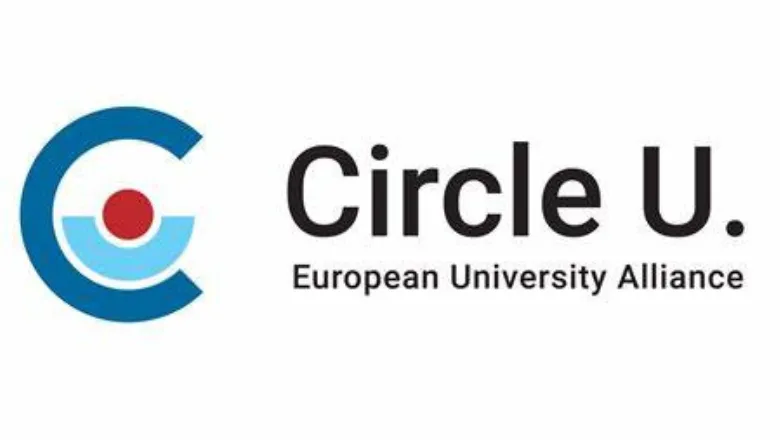05 November 2024
Fostering interdisciplinary collaboration: an evaluation of the Circle U. Sandpits
Irene Soriano Redondo
Sandpits are residential workshops designed to stimulate interaction among participants and encourage free thinking

Since 2018, King’s College London has been a member of Circle U., an alliance of nine research-intensive European universities committed to enhancing students’ experiences and driving impactful research. Formed under the European Commission’s European Universities Initiative, Circle U. seeks to stimulate education, research and innovation to contribute to more sustainable, democratic, and healthier societies.
In September 2021, Circle U. launched the Empowering Research and Innovation Actions (ERIA), funded by the European Union’s Horizon 2020. This project aimed to strengthen the research and innovation capabilities of Circle U. through delivering various pilot activities, ranging from an interdisciplinary research award to training programmes on climate change and global health, Irene Soriano, a Research Associate at the Policy Institute, evaluated these pilot activities to better understand their effectiveness and guide the Circle U. 2030 Strategy.
One of the activities evaluated was the Circle U. Sandpits, a dynamic approach to promote collaboration and creativity in research. Originating from the UK Engineering and Physical Sciences Research Council in the early 2000s, Sandpits are residential workshops designed to stimulate interaction among participants and encourage free thinking to come up with new initiatives, novel research projects, or solutions to pressing challenges. Also known as ideas factory or labs, various research councils and research institutions across the UK, Europe and the US have been using Sandpits to address challenges such as health inequality or energy efficiency.
The Circle U. Sandpits were designed to push research frontiers beyond disciplinary categories. In 2022 and 2023, Circle U. organised two rounds of two-day residential Sandpits. Around 20 researchers from diverse disciplines, alongside stakeholders from outside academia, gathered twice for 48 hours in Louvain-la-Neuve (Belgium) to brainstorm interdisciplinary research ideas. A panel of academics from across Circle U. universities selected participants based on their motivation and interest in interdisciplinarity, with no restrictions on research areas, age, career stages or nationality. Participants, who had never met before, ranged from PhD candidates to professors across multiple disciplines such as psycholinguistics, literature, architecture, and mathematics.
Unlike other Sandpits organised, which often begin with a predefined theme or aim to address specific challenges, the Circle U. Sandpits offered complete freedom to participants to create research projects that combined various disciplines. Professional facilitators guided interactions to help participants get to know each other, learn about the commonalities across their disciplines, identify how they could use their expertise to complement each other’s research interests, and eventually come up with novel, interdisciplinary research ideas that could be turned into fundable research projects.
The evaluation of the Sandpits, conducted through observations, surveys, focus groups and interviews with participants, showed that the workshops were successful in promoting interdisciplinary research and forming new collaborations. Almost all Sandpit participants from across both editions (2022 and 2023) reported an increased interest in inter/trans-disciplinary research and an improved understanding of inter/trans-disciplinary research approaches, which led some to come up with new ideas on how to integrate these approaches in their own work or research.
The opportunity to connect and exchange ideas with a range of experts across disciplines and countries was highlighted as a significant benefit, with many participants reporting that the event not only stimulated their intellectual curiosity, and helped most develop their teamwork, communication, and creativity skills, but also allowed them to establish meaningful connections and potential collaborations.
In 2023, 14 out of 19 participants formed collaborations during the event and prepared four formal research proposals, three of which were successful in securing funding through a Circle U. seed-funding scheme.
The collaborations demonstrate the power of interdisciplinary thinking, with one project exploring methodologies to reach organic architecture by bringing together a project manager of a farm retrofitting and experts in architecture, Japanese participatory practices, and social inclusiveness. Another project brought together an artist and experts in child and family health, behavioural sciences and medical statistics to explore the use of arts in improving experiences in maternal, child and family care.
Although further research is needed to assess the sustainability, as well as medium and long-term outcomes of the partnerships developed in Sandpits, preliminary findings from this evaluation and other literature suggest that these workshops are a promising tool to stimulate new interdisciplinary research. When well organised, Sandpits can foster international and interdisciplinary collaborations and allow participants to exchange knowledge and cultivate curiosity for other disciplines.
However, successful collaborations require open-minded participants with a genuine eagerness and availability to collaborate, as well as expert facilitators to guide the activities and encourage knowledge exchange between participants. It also requires adequate funding to support emerging projects and promote co-authorship. Opening new funding paths for interdisciplinary research that does not fit in traditional funding schemes could open opportunities for new trans and inter-disciplinary projects that embrace innovative, out-of-the-box thinking.
In conclusion, the Circle U. Sandpits have demonstrated the potential to advance interdisciplinary collaboration and research innovation across Europe. The workshops can foster a spirit of collaboration, creativity and innovative thinking, which can contribute to a programme of research that transcends disciplinary boundaries.
Irene Soriano Redondo is a Research Associate in the Evidence Development and Incubation Team (EDIT) at the Policy Institute, King's College London.
